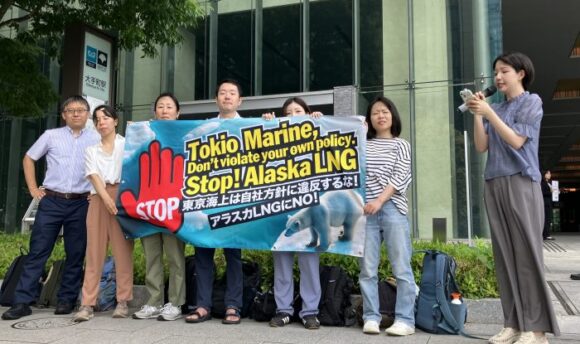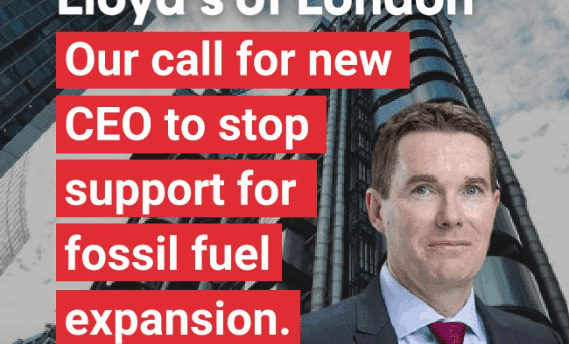17 January 2023 – The Net-Zero Insurance Alliance (NZIA) Target-Setting Protocol, launched today at the World Economic Forum, lacks ambition and opens the door to corporate greenwashing according to the Insure Our Future campaign.
The protocol is supposed to set targets for the underwriting portfolios of the 29 insurance and reinsurance NZIA members to align with a 1.5C net zero transition pathway. But the weak targets fail to meet the Race to Zero minimum criteria and are insufficient to halve insured CO2 emissions by 2030.
"The Net Zero Insurance Alliance's protocol is devoid of any ambition and will not align insurance underwriting with a 1.5C pathway. It offers a fig leaf for business as usual and opens the door for corporate greenwashing. Insurance companies should go beyond this low-ambition protocol and follow the science when they set their decarbonization targets."
The new protocol contains the following gaps and loopholes:
- The protocol only stipulates that insurers “should” set targets to reduce the Scope 3 emissions of their customers but doesn’t mandate them to do so – even where emissions are significant and data are available. Insurers can thus only disclose the operational emissions of the coal, oil and gas companies which they insure but ignore the much larger emissions from burning the fossil fuels which their cover enables. This outdated approach to Scope 3 emissions violates the minimum criteria of the UN Race to Zero campaign and the UNSG High-level Expert Group’s recommendation on net zero commitments.
- Some insurers have offered their new protocols as an alternative to the fossil fuel exclusion policies which NGOs advocate for. Yet their protocol doesn’t cover the lines of business which are typically used to insure new power plants (construction and erection all-risk). It thus allows insurers to claim that they are on a net-zero pathway while they continue to insure the expansion of fossil fuel projects.
- The target setting protocol offers a menu with different types of targets which insurers can set, from actual emissions reduction targets to targets for insuring clean energy solutions and corporate engagement targets. For each line of business that is within scope, insurers can individually decide whether to apply emissions reduction or other types of targets, and they can wait until the end of 2024 with setting the first emissions reduction target.
- Under their emission reduction targets, insurers can aim for reductions which are as modest as 34% by 2030. This is far below the reduction targets of the IPCC’s 1.5°C report of 43% and the 50% reduction targets mandated by the Race to Zero campaign.
- Insurers have offered the engagement of fossil fuel companies in a net-zero dialogue as another alternative to exclusion policies. Such engagement has so far been notoriously ineffective in ending the expansion of coal, oil and gas extraction. Yet under the new protocol, insurers don’t have to measure the success of their engagement in terms of positive outcomes. Instead they can do so “simply in recognising the re/insurer’s efforts (that may or may not result in a specific outcome)”.
"If any industry should be aware of the horrendous damage that climate-fueled disasters are already causing it should be insurance. Yet NZIA has been late to the table, and the guidelines show an astounding lack of ambition. It could have learnt from the shortcomings of other sectoral alliance, but instead took a step backwards in comparison. No mention is made of coal, for instance, and there is no requirement to set emissions targets before the end of 2024."
The Insure Our Future campaign announced today that working with Reclaim Finance, it will assess the targets which insurance companies set under the new protocol by July 2023 against the criteria of the UN Race to Zero campaign and will call out leaders and laggards in a scoring and ranking exercise.



